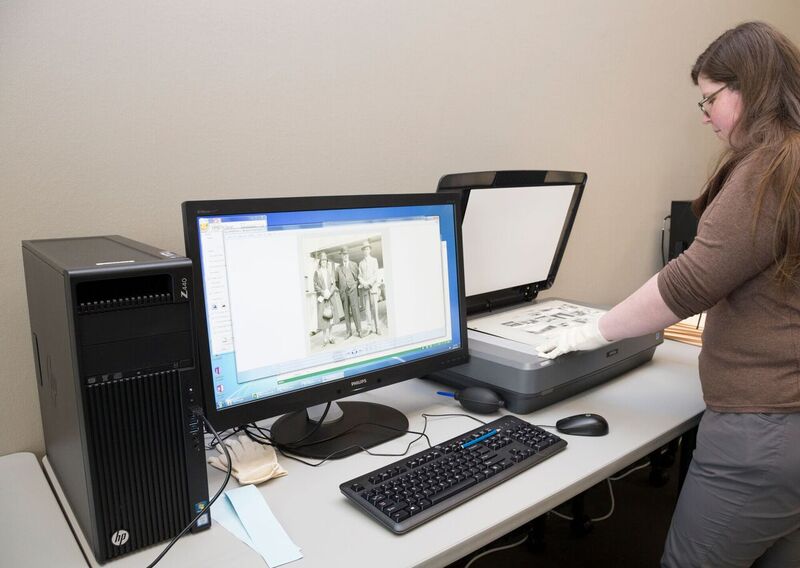With the approach of International Archives Day on 9 June the following extracts from the Government of Canada Survey of Heritage Institutions: 2017 report are noteworthy.
(Canadian) heritage institutions have a combined total of over 7.7 million linear meters of textual records— (about the length of the main route of the trans-Canada Highway.) Archives house the bulk of these records (approximately 72%), followed by museums (27%). (It's not clear whether that includes LAC's holdings of publications)
There are over 113 million items of graphic material (i.e. photographs, drawings, cartographic maps, architectural and technical drawings etc.) held in heritage institutions all over Canada. Archives house the majority (69%) followed by museums (29%).
Canada's heritage institutions preserve and protect over 1.9 million hours of film, video and sound recordings. Archives and museums hold most of these collections at 70% and 26% respectively.
Heritage institutions house over 70 million artefacts and objects, including archeological artefacts, fine art, military objects, scientific or technical objects etc. Museums are responsible for protecting over 81% of these treasures, followed by historic sites at 17%.
There are nearly 41 million natural history and scientific specimens (i.e. plant, animal, paleontological and geological specimens) conserved across the country, allowing scientists, researchers and enthusiasts to study the natural history and phenomenon of our world.
 Heritage institutions have amassed over 5.6 million gigabytes of born digital records (records that originate in a digital form). They also have over 4.7 million gigabytes from the conversion of physical objects and records into a digital format. In both instances, archives hold most of those digital records, 77% and 94% respectively.
Heritage institutions have amassed over 5.6 million gigabytes of born digital records (records that originate in a digital form). They also have over 4.7 million gigabytes from the conversion of physical objects and records into a digital format. In both instances, archives hold most of those digital records, 77% and 94% respectively.
Overall, heritage institutions have converted over 16% of their physical artefacts and records into digital format. Of that, about 10% is available online to the public.
21 May 2018
16% of Canada's physical artefacts and records converted to digital
Subscribe to:
Post Comments (Atom)

2 comments:
It may be just digital jargon to use the word " converted", but I surely hope this all does NOT mean that Museums will get rid of their original artifacts . The expected published life for digital records is 10 t0 15 years, or less if they don"t get "converted" to any future operating system, given the love of techno-phobes for constant change of machines,and given the usual lack of "Conversion money"at the time.
While we are on the topic...One project I have is to photograph and PRINT PHOTOS of family artifacts. I will put one copy in an album, and another in a safety deposit box. The photography does not hve to be "professional quality." Photos and artifacts can be used to interest the younger generation in particular. Also, they can accompany a story sent to family. I hope to encourage other family members to share/tell me what they have.
Artifacts can be simple items such as older cooking tools, carpentry tools, jewellery, etc
Also, having been to the storage "locker" in Gatineau, I wish we could see more of the books, paintings etc.that are donated
Post a Comment